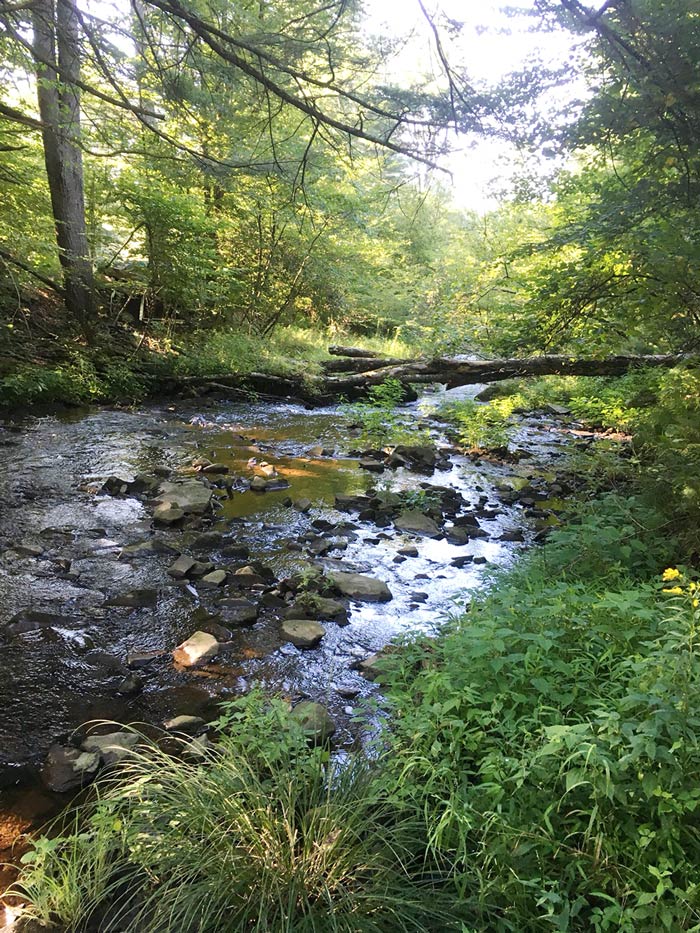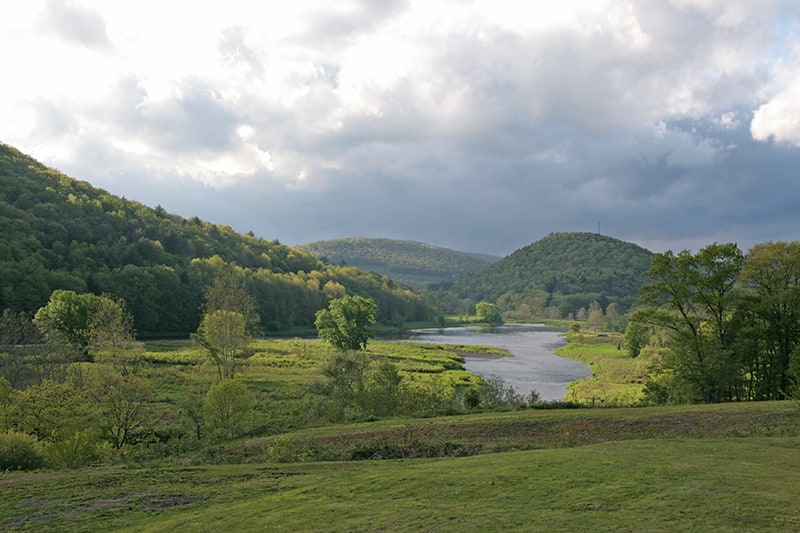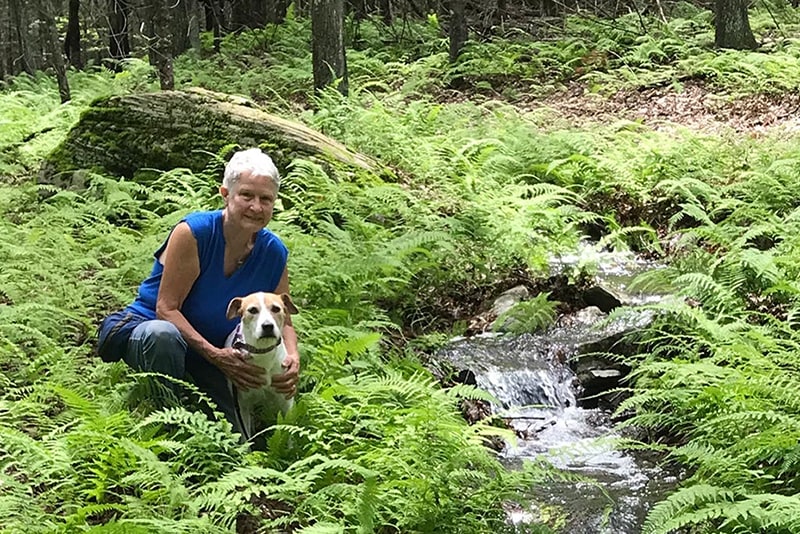Comment to NYS DEC on Draft Regulations on Proposed High-Volume Hydraulic Fracturing
January 9, 2013
ATTN: Draft Regulations for High Volume Hydraulic Fracturing
NY State Department of Environmental Conservation
625 Broadway
Albany, NY 12233
Dear Commissioner Martens:
This letter is submitted by the the Delaware Highlands Conservancy (Conservancy) for the purpose of commenting on the proposed high volume hydraulic fracturing (fracking) regulations and the amendment to the State Pollutant Discharge Elimination System (SPDES) regulations by NY State Department of Environmental Conservation (DEC).
The Conservancy is a land trust whose mission is to work in partnership with landowners and communities to protect the lands and waters of the Upper Delaware River region. “Protection” includes directly protecting land with conservation easements, promoting sound conservation practices, and supporting and promoting sustainable, long term, and environmentally healthy local economic drivers within the region. These drivers include ecotourism and outdoor recreation, local agricultural and forest products businesses, and the myriad of small, local businesses supported by environmentally healthy natural and working lands.
In line with our mission and because of the preponderance of available peer reviewed and legitimately sourced studies citing the risks of fracking to clean drinking water and to human and animal health, the Conservancy has determined that fracking is “not compatibile with our conservation mission.”(1) Considering reports including but not limited to “Water Pollution Risk Associated with Natural Gas Extraction from the Marcellus Shale,”(2) “The Costs of Fracking,”(3) “Impacts of Natural Gas Drilling on Human and Animal Health,”(4) and the EPA Report, “Study of the Potential Impacts of Hydraulic Fracturing on Drinking Water,” which makes clear that at least another year of intensive study is necessary to determine drinking water risks,(5) we strongly recommend that DEC not approve any final regulations of fracking until after the redraft of the final Supplemental Environmental Impact Study (SGEIS) is completed and released for a sufficient public comment period of at least 90 days.
We point specifically to sections 560.4, 560.6 (c) (7), and 560.7 of the draft regulations, which communicate inadequate setbacks of drilling operations from drinking water sources, pathways for an owner operator of a well pad to acquire DEC permission for open pit storage of contaminated drill cuttings right next to well pads, and inadequate mitigation and/or disposal of soils potentially contaminated with radioactive waste.(6) Considering the significant risks to environment and human and animal health precipitated by these inadequate regulations, a fully completed SGEIS study that comprehensively considers all impacts of fracking in addition to sufficient time for the public to comment upon the results of said completed study are required.
Furthermore, since FEMA is in the process of revising its 100 year flood plain, which could put potential sites for well pad development within the new parameters, no approval for drilling permits of any kind should be forthcoming before FEMA completes the revised plan. Severe flooding such as that which resulted from Hurricanes Irene and Sandy have the potential to damage well infrastructure and result in significant water and soil contamination.
Because of the potentially severe environmental consequences of fracking, for the DEC to approve fracking regulations that would result in a lifting of the moratorium prior to the completed SGEIS and FEMA flood plain revision is contrary to DEC’s stated mission: “To conserve, improve and protect New York’s natural resources and environment and to prevent, abate and control water, land and air pollution, in order to enhance the health, safety and welfare of the people of the state and their overall economic and social well-being.”
We urge you to consider the ramifications of approving fracking regulations without completed study and appropriate public comment period and to act with your stated mission foremost in your consideration.
Sincerely,
Sue Currier
Executive Director
Delaware Highlands Conservancy

References
- See our “Natural Gas Guidelines”
- Researchers Find Substantial Water Pollution Risks From “Fracking” To Recover Natural Gas
- Environment America: The Costs of Fracking
- Impacts of gas drilling on human and animal health
- Hydraulic Fracturing for Oil and Gas: Impacts from the Hydraulic Fracturing Water Cycle on Drinking Water Resources in the United States (Final Report)
- See “Consideration of Radiation in Hazardous Waste Produced from Horizontal Hydrofracking;” Report of E. Ivan White, Staff Scientist for the National Council on Radiation Protection.
Specific Natural Gas Issues
Conservancy's Natural Gas Guidelines
Comments to FERC on Cummins Hill
Comment to PSC on Cumulative Pipeline Impacts
Comment to NYS DEC on Draft Regulations on Proposed High-Volume Hydraulic Fracturing





